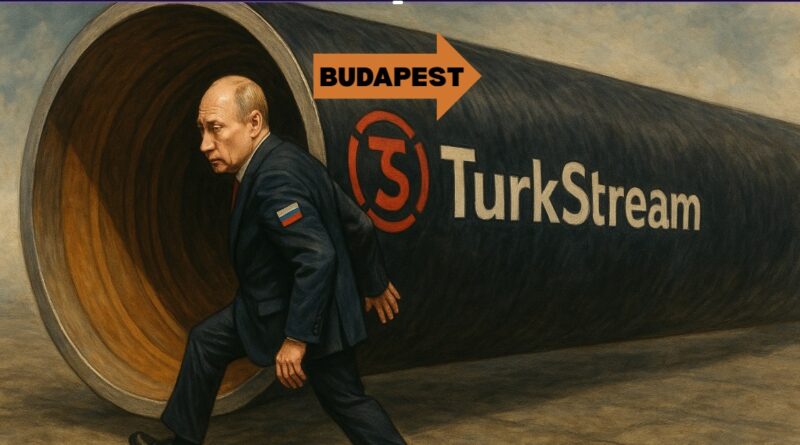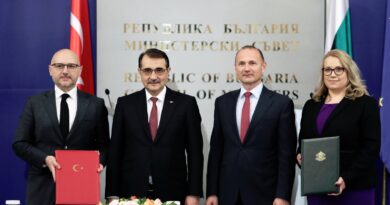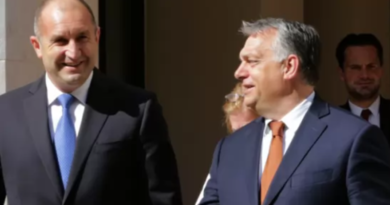Orbán’s Stage for the Kremlin: The Trump–Putin Meeting That Europe Dreads
The planned meeting between Donald Trump and Vladimir Putin in the Hungarian capital is rapidly escalating into a hybrid offensive against the European Union—enthusiastically endorsed by Viktor Orbán. The very choice of Budapest places the EU in a precarious position, forcing it to confront potential breaches of its own sanctions regime and its obligations under the Rome Statute of the International Criminal Court (ICC).
Trump and the Politics of Coercive Diplomacy
President Trump’s planned visit once again positions him within Putin’s hybrid offensive against the EU. The setting also traps Ukrainian President Volodymyr Zelensky in an impossible situation. Orbán is arguably the last European leader Kyiv would accept as a neutral host for discussions on peace.
Forcing Zelensky to endure the humiliation of waiting for the outcome of a Trump–Putin meeting—all in the name of the White House’s political ambitions—is an act of coercion disguised as diplomacy.
Orbán: The Architect Behind the Venue
Officially, the idea for hosting the meeting in Budapest came from Donald Trump—a convenient narrative meant to deflect scrutiny. It is highly improbable that the U.S. State Department or any other informed institution would support hosting Putin—an indicted war criminal under ICC warrant and EU sanctions—in the heart of Europe.
Support Independent Analysis
Help us keep delivering free, unbiased, and in-depth insights by supporting our work. Your donation ensures we stay independent, transparent, and accessible to all. Join us in preserving thoughtful analysis—donate today!
While Washington remains deliberately vague, all signs point to Orbán as the true initiator. Putin has every interest but little leverage to secure the location himself; Trump is generally indifferent to such details. This leaves Orbán—armed with his MAGA connections and pro-Russian network across Europe—as the natural intermediary.
Crucially, the initiative coincides with Hungary’s notice of intent to withdraw from the Rome Statute, effective in 2025—a move that would free Budapest from its obligation to detain Putin after mid-2026. Facing steeply declining domestic approval ahead of next year’s parliamentary elections, Orbán needs Trump’s endorsement both to reinforce his defiance of Brussels and to legitimize his increasingly open courtship of Moscow.
Strategic Coordination: Converging Agendas
It is no coincidence that Trump recently declared he would not sanction Hungary because it is a “landlocked country” dependent on Russian oil via the Druzhba pipeline—a dependency the Czech Republic, also landlocked, managed to end within a few years.
Orbán and his foreign minister, Péter Szijjártó, have been quick to assure that Hungary will continue to defy EU sanctions, buy Russian energy, and ensure Putin faces no travel obstacles in or out of Budapest. The Kremlin confirmed that Trump proposed the location and that Putin “immediately accepted.”
The reasoning is obvious: a high-profile appearance in Europe would help Putin break his international isolation, while Trump could use the event to pressure the EU into granting exemptions from its sanctions regime in the name of “peace.” In this, the agendas of Putin, Trump, and Orbán fully converge.
The Legal Paradox: Sanctions and the ICC Warrant
Under the ICC’s March 2023 arrest warrant, all states party to the Rome Statute—including every EU member—must arrest Vladimir Putin if he enters their territory. Despite its notice of withdrawal from the Rome Stature, Hungary remains legally bound until mid-2026.
In addition, Putin remains subject to EU sanctions that prohibit his entry and transit through EU territory. Even an overflight by his plane would require a formal, nationally approved derogation coordinated with the European Commission. Granting such permission—and hosting the meeting on EU soil—would be a blatant demonstration of the Kremlin’s ability to manipulate Trump and use Orbán to undermine the European sanctions regime.
The Route and the Illusion of a “Peace Mission”
A northern flight path to Budapest is improbable. The most plausible route runs along the TurkStream corridor—via Bulgaria and Serbia. Since Serbia is not an EU member and does not fully enforce European sanctions, the diplomatic pressure would likely fall on Sofia or Podgorica. Both Bulgaria and Montenegro refused flight clearance to Russian Foreign Minister Sergey Lavrov in 2022. A similar refusal today would provoke intense pressure from Moscow and potentially from Washington. Without firm EU backing, sustaining such resistance would be difficult.
Meanwhile, Russian and pro-Russian outlets have begun circulating “leaks” suggesting that Moscow and Washington have reached 90 percent agreement on a ceasefire framework—implying that only signatures are needed in Budapest. The aim is to create inflated expectations and to portray Putin as offering a “realistic peace” that Trump could deliver to Zelensky.
Trump has reportedly sought to attach conditions and “verification milestones” to Putin’s participation, but these measures are largely cosmetic—political theater intended to reassure skeptical allies rather than to constrain Russian behavior. Such gestures provide a domestic alibi for Trump’s engagement but do nothing to address the fundamental problem: the meeting itself is designed to fracture European unity and legitimize Putin’s position regardless of results.
Ilian Vassilev




